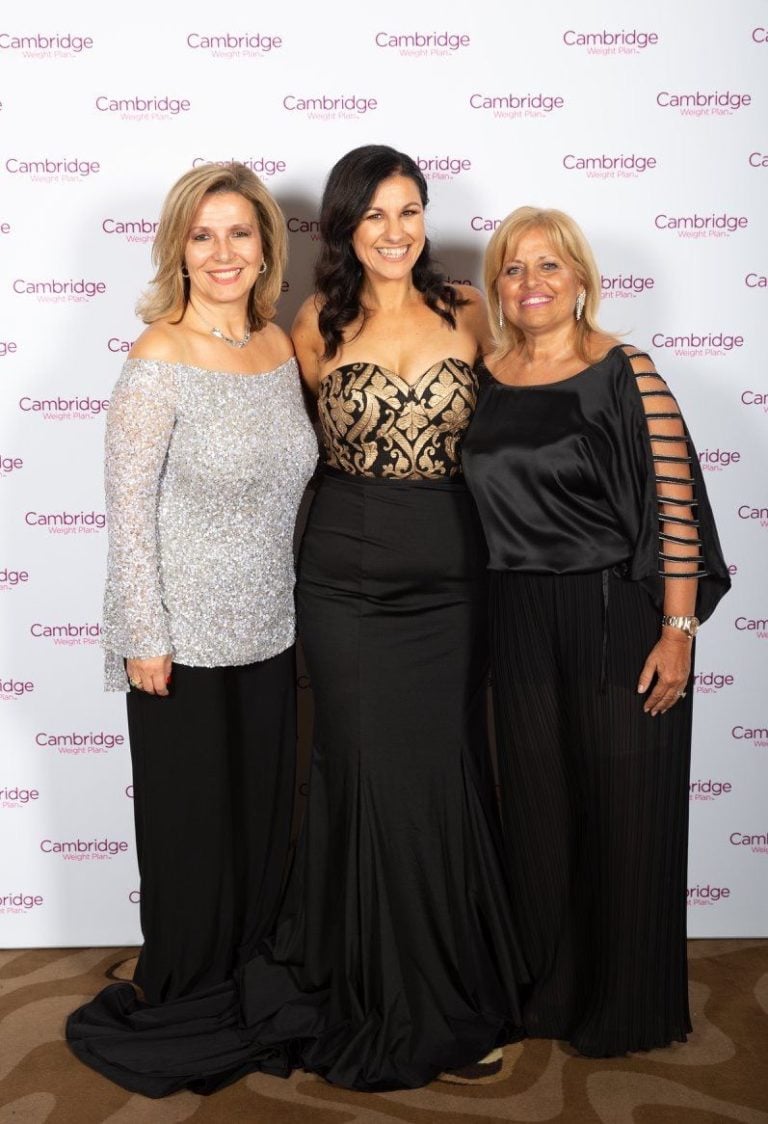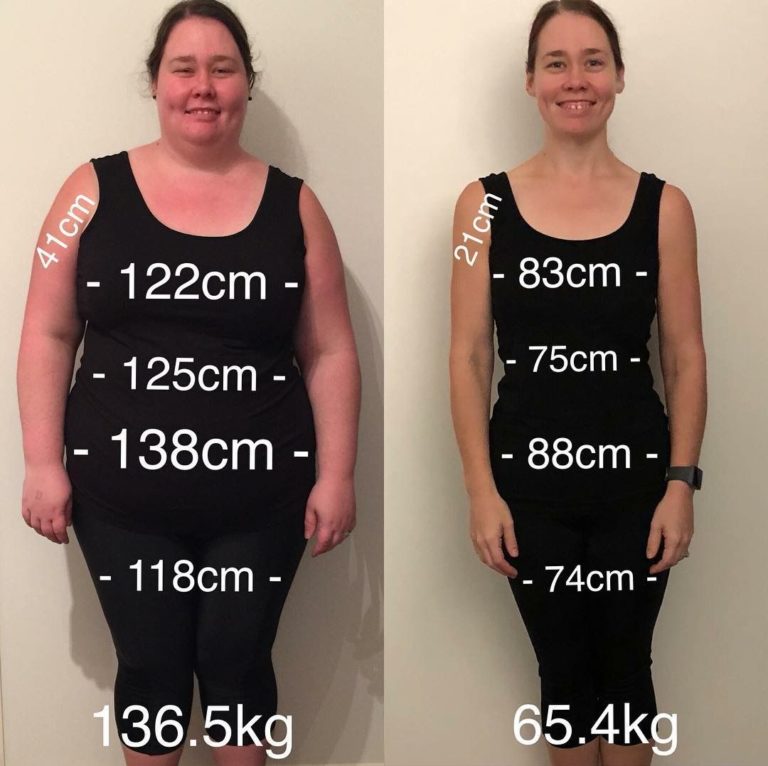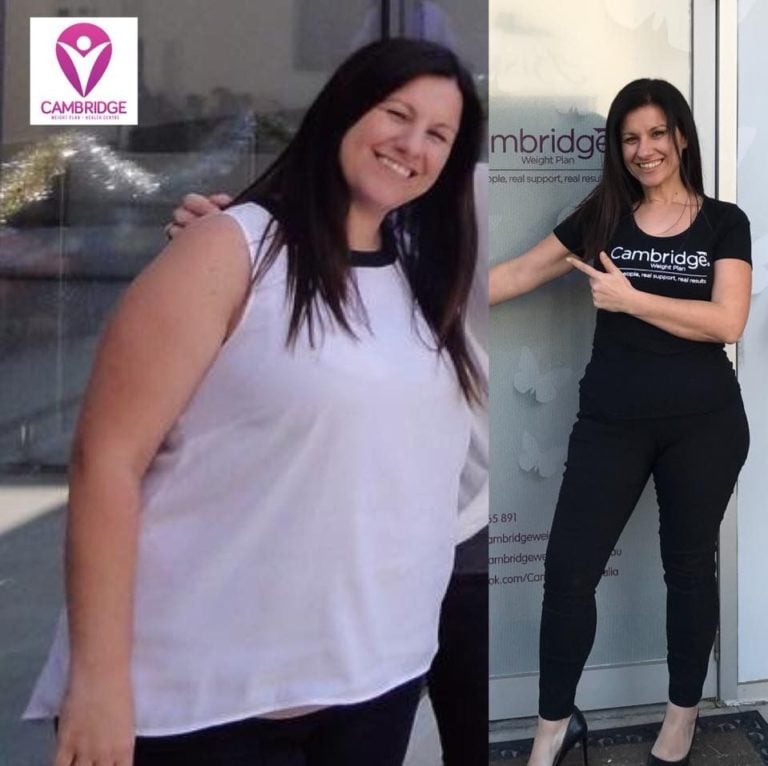Maria Akritidis remembers when she was at her heaviest. Exhausted, just getting out of bed most mornings was a struggle, let alone walking up a flight of stairs, and as a mum it was a reality less than ideal.
After trying diet after diet, Maria came across the Cambridge Weight Plan on which she lost 35 kilos, and says she hasn’t looked back.
“A couple of weeks into the program I remember waking up, and this might sound minute to some people, but waking up before the kids, and actually waking up and feeling good and having that energy,” she tells Neos Kosmos.
Her experience blew her away, and after managing to successfully break her 24-year dieting cycle, Maria decided to give back and undertake the training to become a Cambridge Weight Plan consultant herself, which she does based out of Oakleigh.

But what exactly is the Cambridge Weight Plan? As the name suggests, it has its origins in the UK where it was developed by biochemist Dr Alan Howard and Dr Ian McLean-Baird in the 1970s. The pair set out to develop the ‘perfect diet’: a formula food with weight loss properties, without the undesirable side effects.
The resulting formula was subsequently tested in hospitals and with outpatients, demonstrating remarkable weight loss, patient acceptability and patient safety.
Since then the plan has been revised and improved, with the first commercial version launched in 1984. Now available in 42 countries around the world including Greece, Cyprus and has been in Australia for five years, owned by Greek Australian Ken Skoulios and Cypriot Helen Zenios.
While the diet is developed on the basis of science and medically backed, it has been labelled as radical given its low 800 calorie point. But Maria clarifies that it is not like other meal replacement diets whereby food is replaced by protein- or weight-loss-based shakes.
“It’s not conventional 800 calories, and that’s probably something that is the point of difference. It’s the only one that’s on the market that’s 100 per cent nutrient dense,” she explains.
What this means is that each product is made with the right level of protein to protect lean tissue; carbohydrate to promote a mild ketosis and eliminate hunger, and the right level of vitamins, minerals, trace elements and essential fatty acids to maintain good health.

“It was originally designed for people that were severely morbidly obese that needed to lose that vascular fat around their vital organs in order to prepare for open heart surgery. So it’s not designed to put stress on the body; it’s designed to actually give your body its optimum nutrient density, find the vascular fat and drop it,” she says.
The diet is comprised of six steps. The first step, which is the most drastic, sees the Cambridge Weight Plan products as the sole source of nutrition, so a complete meal replacement plan, which Maria admits isn’t for everyone.
“Out of every 100 people that I have walk through my door, less than 10 would start on that step,” she says.
Each step thereafter gradually introduces conventional food, and decreases the number of meal replacement products until the individual has reached their weight loss goal, when the final step of transitioning from weight loss to maintenance is entered.
Meanwhile to help along the way, participants meet with their consultant once a week.
“So the beauty behind it is that you don’t just lose the weight, we shake your hand, and best of luck figuring out how to eat pasta now,” she says.
“Once your body has stabilised that weight loss and your metabolic rate has reset itself, if your goal is 10 kg, we don’t want you to put five of it back on, but we also don’t want you to lose another five kg, so we need to let the body stabilise at that point. Once it’s learnt how to stabilise, we take away another Cambridge product, we increase your calories with food varieties, see how your body reacts to it and then that’s part of your stabilisation and maintenance, all while it’s one-on-one support and weekly check ins.”
This includes being weighed, measured, and a conversation about the past week, any challenges, and a discussion of ways to combat the week ahead. Maria provides recipes, along with motivation, and little tips and tricks on how clients can reach their goal.
While such meetings can seem confronting, from her own experience in the hot seat, Maria recalls her sessions as “invigorating” and without judgement.
“In order for someone to become a consultant, they had to have gone through the same weight loss process. So it was someone who has that unspoken language of going through the same journey as you,” she explains.
The meal plan is most suited to people who have been struggling to lose excess weight for some time, in many cases due to a medical condition such as an under active thyroid, polycystic ovaries, or cholesterol, and for those looking to re-establish their relationship with food.

While the Cambridge Weight Plan is recognised in the UK by the British High Commission Queen’s Choice Awards, Diabetes Association and Cholesterol Foundation, given its relatively short presence in Australia, Maria says it is still in the process of being officially recognised by local bodies.
The idea of a meal replacement diet isn’t for everyone however, and while the results speak for themselves, it does have its critics; after all, it doesn’t get much farther removed from how one’s ancestors ate, than this.
But with the obesity epidemic in full force, Maria says options like this are necessary.
“It’s amazing how people will jump up and down about how someone is having meal replacements and how taboo that is, and how wrong that is because they’re not eating conventional food, yet the full contradiction is that they’re going through drive thru McDonalds, and then you’re having your microwaved McCains meals and what have you,” she says.
“In a perfect world we still eat the way our grandparents would eat, but it’s not that easy for some people to know what portion sizing and portion controlling is because that’s probably something that has been a little bit distorted for us, along with accessibility, stress and lifestyle factors.”
There’s no denying Maria’s passion for what she does. The 2018 Consultant of the Year for Australia reveals that while some consultants choose to charge consultation fees, she doesn’t, and says that while it might sound sappy, that she truly sees it as a way to show her thanks.
“Cambridge is a means to an end, not your life and lifestyle. It’s there to realign your portion sizing, for some people get off medication for medical conditions, which is exciting, but it’s the aftermath and that’s why we slowly integrate back into everyday life and lifestyle,” she says.
“After 24 years of constantly being on that weight loss struggle, it is exhilarating to find something that’s gotten me off that loop. There’s a good feeling about feeling good, but also helping others get to that place. It was really about that empowerment that it gave me, and being able to pay that forward to others.”








